By liris on March 23, 2015
For tomorrow’s class I will be presenting on the issue of internet addiction with a focus on addiction to online games. If you have a chance, please check out the following links prior to the presentation (or after if you don’t have a chance before!). The video in particular is a bit long (1hr 30) but it is really interesting all the way through so I highly recommend it.
“I Kept Playing: The Cost of My Gaming Addiction” (Kotaku article)
Jonathan Blow: Video Games and the Human Condition (exploring the development, features, and ethics of addictive games) (video – can start around 5:00 unless you want to learn some interesting facts about parasitic infection of ants)
Cow Clicker – a satirical take on the addictive cell phone game model (website/game)
Additional links:
“In Real Life” – Anthony Rosner – World of Warcraft Addiction Self-Documentary (short video)
For those that have Netflix, I also recommend the documentary “Web Junkies”, which examines the “boot camp” approach to treating youth who are thought to be suffering from video game addiction in China. It demonstrates both the apparent severity of the addiction but also raises questions about the real causes of the problem and what the best way might be to address it.
I look forward to our class discussion tomorrow!
Laura
Read More | No Comments
By Jon Festinger on March 23, 2015
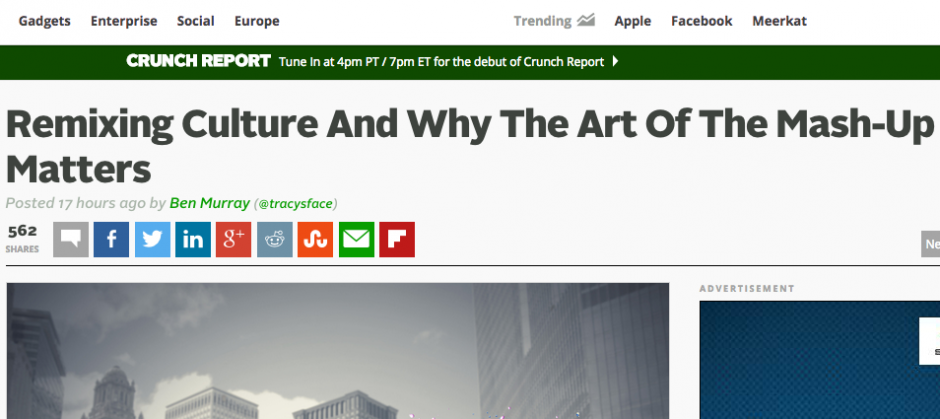
The title tells all about the relevance to the course. A thoughtful piece worth the read: Remixing Culture And Why The Art Of The Mash-Up Matters | TechCrunch.
jon
Read More | No Comments
By tbud on March 20, 2015
Here is a New York Times book review of ‘Data and Goliath’. I pulled a relevant quote from the article:
“In the corporate realm, Mr. Schneier promotes no less than a fundamental reshaping of the media and technology landscape. Companies with access to large amounts of personal data would be “automatically classified as fiduciaries” and subject to “special legal restrictions and protections. That these limits would render illegal most current business models — under which consumers exchange enhanced access by advertisers for free services – does not seem to bother Mr. Schneier: “If we succeed in raising the cost of surveillance and data collection, new businesses that don’t rely on it will rise up and take the place of the current ones that do.”
One wonders what the future of Facebook will be if the latter statement holds true. As a contrary argument, one might wonder if there is a societal benefit to Facebook’s ability to find insights on human behaviour that otherwise would not be possible on such a wide scale. While it is true that data analysis and technology have no moral imperative, it may also be true that mass data can be used for virtuous purposes if wielded in the proper way. Does the current business model of exchanging personal information to advertisers for free services necessarily diminish or negate such purposes? What alternative business models are possible?
You can read the entire article here: http://www.nytimes.com/2015/03/17/business/dealbook/book-review-of-data-and-goliath-by-bruce-schneier.html?ref=technology
Read More | No Comments
By aowais on March 20, 2015
The following article describes Microsoft’s announcement that everyone will get a free upgrade to Windows 10, including users with pirated licences. However, upgrades from pirated licences will be deemed “non-genuine”. Although it is not clear what the implications of having a non-genuine license may be, industry experts note that there is greater risk of malware, fraud and malfunctions in pirated versions. This can be associated with the fact that pirated versions may not be able to receive updates for their copies. The goal of Microsoft is to get everyone on a single, regularly updated platform. Is Windows using their license agreement to punish pirates by claiming their license as “non-genuine”? While on its face it may seem fair to differentiate between users who bought previous versions of Windows against users who downloaded pirate versions, but is allowing users to upgrade from their pirated copies only to lock them out from security updates which may be vital to their privacy going too far? This relates to a previous talk we had in class about Rebecca Tushnet’s article which described how corporations used their licensing agreements to replace fair use provisions and over-leverage their positions in their agreements.
http://arstechnica.com/information-technology/2015/03/the-windows-10-free-upgrade-for-pirates-more-confusing-than-it-seems/
Read More | No Comments
By aowais on March 20, 2015
Interesting video on the culture of humiliation in case anyone is considering a topic on public shaming, and perhaps would like to link it to how online public shaming, as extra-legal norms, might inhibit creativity.
Read More | No Comments
By Ryan Vogt on March 17, 2015
Cool little animation from Jorge Cham, interviewing Irene Ng and David Reynolds from Hub of All Things: http://phdcomics.com/comics/archive.php?comicid=1788
Cheers!
Read More | 1 Comment
By lowlevin on March 16, 2015
Hi everyone.
Tomorrow, I’ll be doing a presentation on self-censorship as a result of both legal and extra-legal constraints, and its impact on creativity. Here’s a short blog post to get things started: http://www.washingtonpost.com/blogs/monkey-cage/wp/2015/01/16/charlie-hebdo-meets-the-interview/
Levin
Read More | No Comments
By Jon Festinger on March 15, 2015
Here are the slides from Class 9.
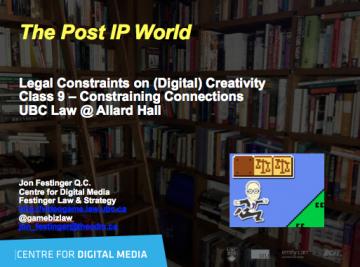
jon
Read More | No Comments
By Jon Festinger on March 15, 2015
A bit belatedly, here are the slides from our Class 8 contextual survey.
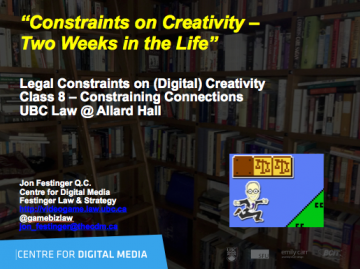
jon
Read More | No Comments
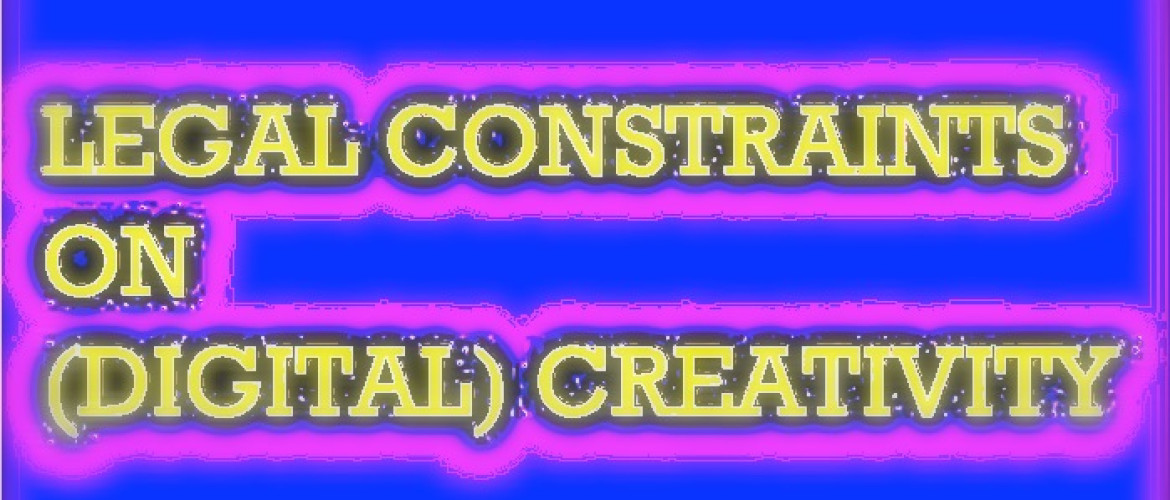




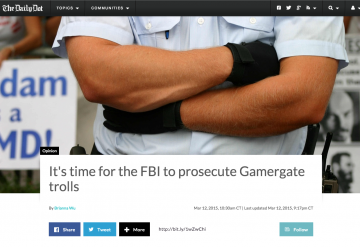

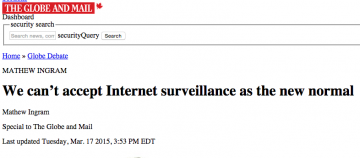
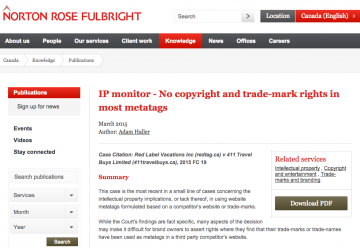
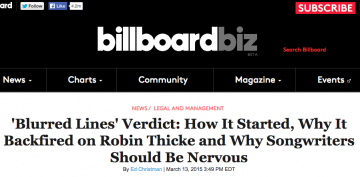



 Check out the UBC Video Game Law Course
Check out the UBC Video Game Law Course